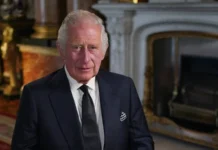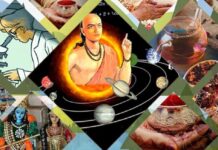As Bharat steps confidently into its Amrit Kaal by working towards the idea of Viksit Bharat, it is imperative to reflect on how Bharat and Bhartiya remember and record their past. In a country that has long relied on Shruti (which is heard) and Smriti (which is remembered), it is both ironic and tragic that our higher education institutions (HEIs) have no Oral History departments. The same land where stories flowed across generations through songs, legends, temples, and educational discourses now relies almost solely on textual records, most of which were shaped not by us but by colonial hands. Furthermore, the Western civilisations that lacked vast oral traditions of their own have ironically taken the lead in institutionalising Oral History as a field of study; all this while, we, the inheritors of one of the richest oral civilisations, are looking the other way.
This absence is not simply a policy oversight but a much deeper malaise of intellectual neglect, perhaps even engineered erasure of historical and civilisational success. It raises uncomfortable yet pertinent questions: why do we treat oral testimony as less credible than colonial and foreign archives in a land where epics like the Ramayana and Mahabharata were orally transmitted for centuries? Why do our institutions, especially our universities, continue to treat our traditional modes of remembering as inferior, anecdotal, or unacademic? Perhaps the answer may lie in the long shadow cast by a certain ideological capture of post-Independence Indian historiography.
For decades, writing history in India has been dominated by a particular class of Left-liberal scholars who have, ironically, carried forward the colonial agenda of delegitimizing India’s civilisational roots. By wrapping everything in the rhetoric of secularism and objectivity, these historians have continued to portray Dharmic traditions as regressive, casteist, anti-modern, and patriarchal, ignoring all women leaders and scholars altogether. They have consistently ignored, if not outright dismissed, the oral traditions of our land and instead elevated colonial records, Marxist frameworks, and imported theories to what constitutes the truth. In doing so, they have created a hierarchy of knowledge that privileges the “foreign” over the “native”, the “textual” over the “oral”, and the “Eurocentric” over the “Indic”.
This is why both Oral History and Archaeology, the two disciplines that hold the potential to radically revise our understanding of India’s past, have been deliberately and consistently kept at the margins. Oral History, in particular, is dangerous for this ideological clique that dominates the discourse because it would fundamentally democratize history, and their so-called authority would vanish. It can bring in the alternative voices—of those who lived through events, those who remember not from books but from experience. Consequently, it disrupts the monopoly of the elite narratives of these historians and brings forth the wisdom of craftswomen, forest dwellers, freedom fighters’ grandchildren, and community elders who carry the truth of our times in their memories. Their stories often challenge the polished textbook versions of history that have been institutionalised and encouraged since Nehruvian times.
Even so, one should also remember that this has a moral dimension. The Left-liberal retelling of Indian history has often served as a project of manufacturing grievances. Entire generations have been taught to resent their past, their culture, and history and to see their ancestors as either victims or oppressors, to finally believe that India’s civilisational journey has been one of darkness until the arrival of the invaders and later the Europeans. This has done a great disservice to the country and its consciousness. A nation that cannot look at its past with gratitude and balance will unlikely build a future with confidence. The idea should not be to glorify or whitewash everything, but to our ancestors not as caricatures in ideological debates but as human beings with vision, flaws, sacrifices, and wisdom. It is to comprehend our understanding of history with context, complexity, and compassion. Oral History offers that window by humanizing the past and allowing us to heal, listen, and integrate. Remember, it teaches us that memory is not just about wounds but also about resilience. In such a sense, Oral History is not only a historical project but a nation-healing project. It allows us to move from narratives of resentment to rebuilding and reclaiming narratives of our past.
Yet, the lingering question remains: why do our HEIs have Departments of Western Philosophy but not Temple Culture? Why do they teach “Freud” and “Foucault” but not “Vyasa” and “Valmiki”? Why can a student graduate in History without ever studying the Puranas, the Itihasas, or the inscriptions on the temples they walk past their whole lives? This could be changed, it has to! For a Department of Oral History, if it existed alongside studies in Temple Culture and Purana traditions, tribal traditions, we would see a revolutionary shift in our understanding of our past or our society and the relationship of different communities with each other. These are not relics of the past but living traditions of knowledge transmission sharing fundamentally common goals: the preservation of cultural heritage, the centrality of storytelling, the emphasis on values, and an interdisciplinary openness that combines history, sociology, anthropology, and spirituality.
While Temple Culture and Purana studies remain mostly confined to traditional or religious institutions, there is no reason why they cannot be brought into mainstream HEIs. And not as electives or token cultural courses but as rigorous academic disciplines that reflect Bharat’s intellectual diversity and depth. By institutionalising Oral History departments, we not only expand the sources of knowledge but also reclaim our civilisational voice, which has long been drowning in colonial narratives, followed by recent postcolonial ideological policing and cancel culture. Now, it is high time that “oral traditions” were brought back.
This becomes even more relevant as we look ahead to the societal renaissance that Amrit Kaal aspires to be. A Viksit Bharat cannot be built on fractured memory. Instead, it should draw strength from past achievements and cultural continuity of the millennium. Then only by standing on the shoulders of those who came before us we can see ahead and move ahead. The shadows and the shame of the past take you nowhere. We need to invest in building our pillars of pride from our past. We must build institutional frameworks that value oral testimony alongside the existing written text and archaeological evidence. Only by investing in memory archives, regional language and dialects repositories, community interviews, and intergenerational storytelling can we bridge the gap between “what is remembered” and “what is recorded”.
Let’s also be clear that it is not about nostalgia but reclaiming agency over our past. It is about ensuring that the story of Bharat is not told only through the eyes of those who colonized it, who despise it, or those who wish to continue intellectual colonization under the latest Marxist woke ideologies. It is about Bharat’s dignity, respect, and the truth of the past. In doing so, we need to be aware that the call for Oral History Departments should not become an academic fancy. It is a civilisational necessity; hence, it is the responsibility of the highest order. If we fail to remember ourselves, others will define us. Suppose we fail to recall memories of our villages, freedom fighters, temple keepers, artisans, and saints. Then, someone else will tell us who and what they were. By allowing that, we will lose not just our stories but also the soul of our civilisation. Let us honour the past not by resenting it but by remembering it truthfully. A country that forgets is a country that fractures and falls apart. But those countries that remember, survive, and rise with conviction and honour.
* Prof Santishree Dhulipudi Pandit is the Vice Chancellor of JNU.







